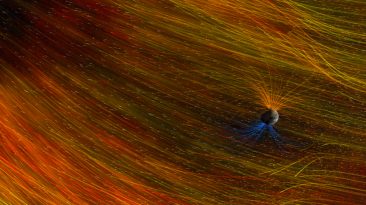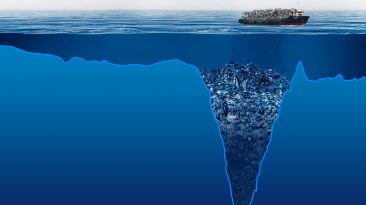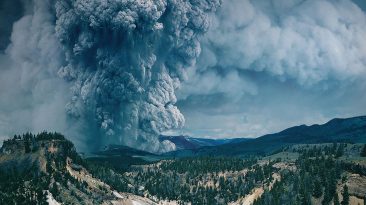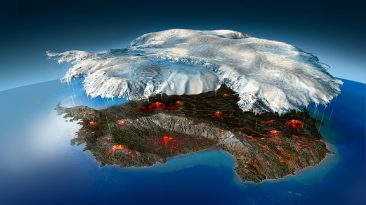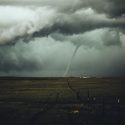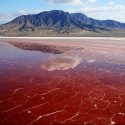Sulfur hexafluoride, now that’s a mouthful. It sure is! It’s more commonly known as SF6 or deep voice gas because, well, it makes your voice deeper!
But sulfur hexafluoride isn’t just an expensive party trick, it’s an extremely potent greenhouse gas that’s five times heavier than air. Its density explains why your voice drops if you breathe it in. But inhale too much of it, and it won’t just be your voice that gets deeper…
Sulfur hexafluoride is a non-toxic gas, but if it were to suddenly comprise 10% of our atmosphere, we’d croak! Not literally.
For the most part, our atmosphere is made up of 21% oxygen and 78% nitrogen. Humans need an atmosphere that’s roughly 19.5% oxygen to breathe normally, so if we were to replace 10% of the oxygen in our atmosphere with sulfur hexafluoride, we’d be left with an oxygen level of 18.9 percent, which is actually still enough for us to live. But here’s the problem.
Because SF6 is five times heavier than air, when you breathe it in, it compresses the lighter oxygen in your lungs. This, in turn, reduces the amount of oxygen making it into your bloodstream, which means you’ll eventually pass out, falling prey to asphyxiation.
Our planet wouldn’t fare much better. Sulfur hexafluoride has a global warming potential that’s approximately 22,200 times greater than carbon dioxide over a 100-year period, and it can live in our atmosphere for as many as 3,200 years!
And yet, it’s often used as an electrical insulator in components that are susceptible to leaks. In fact, studies show that 15% of the equipment containing SF6 will develop leaks.
And for a little context, just one kilogram (2.2 pounds) of SF6 has the same warming effect as 24 people flying from London to New York and back again. But despite the danger, the number of components using SF6 is expected to increase 75% globally by 2030.
Fortunately, our atmosphere will never have 10% SF6. Living in that kind of world would require a complete redesign of our lungs, not to mention the entire origin of species!
Come to think of it, there is one creature that could probably survive in an atmosphere that’s 10% deep voice gas. That’s the mighty eight-legged tardigrade. These near-microscopic critters can live in ridiculous extremes, including being able to survive supernova blasts and gamma-ray bursts. But what are the odds of one of those happening anytime soon?
Subscribe to What-If on YouTube or follow the show on Facebook Watch.
Sources
- “Earth’s Atmosphere: Composition, Climate & Weather”. Sharp, Tim. 2017. space.com. Accessed November 13 2019.
- “What if 10% of the Earth’s atmosphere suddenly became sulfur hexafluoride?”. quora.com. Accessed November 13 2019.
- “Sulfur Hexafluoride – The Gas With A Double-Edged Sword”. Yogender Malik, 2009. Gasworld. Accessed November 13 2019.
- “Sulfur Hexafluoride Gas makes you sound like Darth Vader” 2019. bealsscience.com. Accessed November 13 2019.
- “Products & Applications Of Sulphur Hexafluoride (SF6)”. 2019. Fluorocarbons. Accessed November 13 2019.
- “Sulfur hexafluoride”. 2019. Sciencedaily. Accessed November 13 2019.
- “Atmospheric Lifetimes Of Long-Lived Halogenated Species”. Ravishankara, A. R., S. Solomon, A. A. Turnipseed, and R. F. Warren. 1993. Science 259 (5092): 194-199. American Association for the Advancement of Science (AAAS). doi:10.1126/science.259.5092.194.
- “Changes in Atmospheric Constituents and in Radiative Forcing” 2019. ipcc.ch. Accessed November 13 2019.
- “SULFUR HEXAFLUORIDE” 2019. nj.gov. Accessed November 13 2019.
- “Oxygen and Human Requirements”. 2019. geography.hunter.cny.edu. Accessed November 13 2019.












